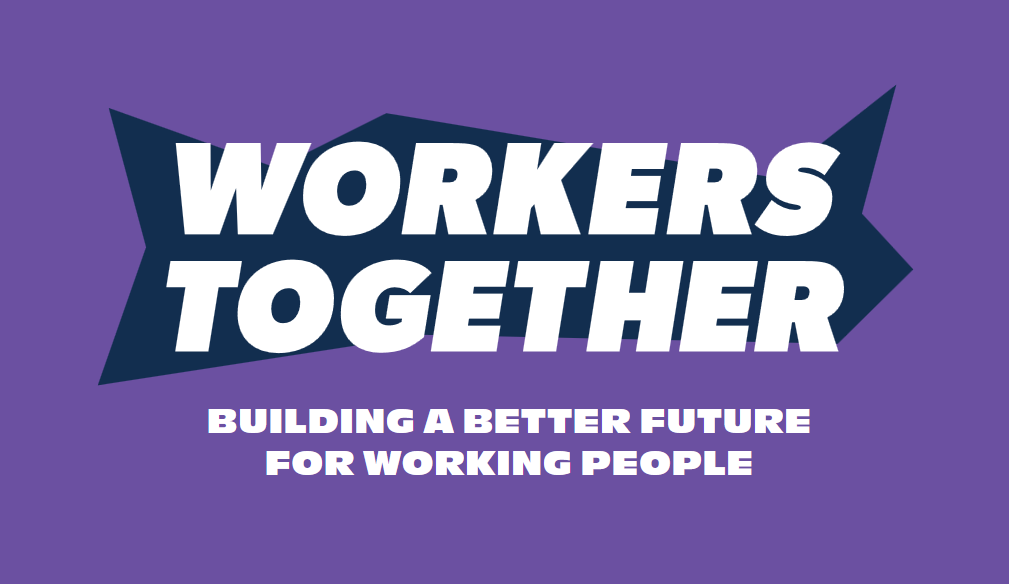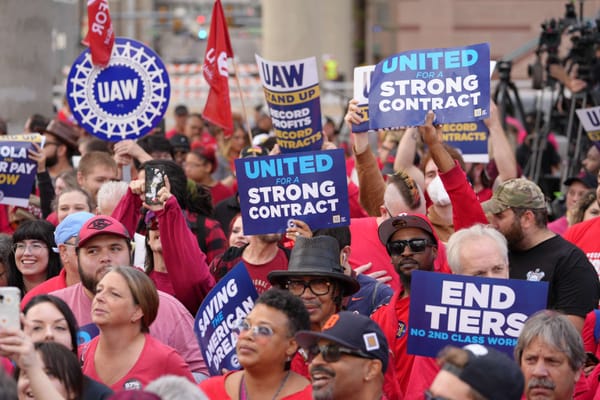
The so-called “Freedom Convoy” descended on Ottawa this past weekend to oppose the new federal vaccine mandate for cross-border essential worker travel. It’s hard to believe that all the hubbub was about something as innocuous as the requirement to get a needle, but I suppose these are the unfortunate times in which we live.
The vaccine mandate required those in international trucking who cross the United States border back into Canada to be vaccinated as of January 15, or to quarantine for 14 days. Similar vaccine mandates have previously been rolled out for other federally-regulated employees, such as those working in air, rail and marine transportation.
The Biden Administration has imposed a similar mandate directed at all essential and non-essential foreign travel into the United States, which also required Canadian truckers crossing the border to be fully vaccinated by January 22.
CTV News has reported that those leading the “Freedom Convoy” claim that up to 26,000 truckers may not comply with the mandate. However, this seems like a considerable overestimation. The Canadian Trucking Alliance (CTA), for example, says that 85 per cent of the approximately 120,000 truckers who regularly cross the U.S.-Canada border are already vaccinated. The Federal Minister of Transportation, Omar Alghabra, puts this figure at nearly 90 per cent.
According to these numbers, then, somewhere between 12,000 to 18,000 truckers who regularly cross the border are currently not vaccinated, and I’m willing to bet that more than a few of them would rather get the shot than lose their jobs. So far, the Liberals claim there has been no noticeable reduction in trucks moving goods across the U.S.-Canada border.
Ultimately, the number of truckers who prize their “freedom” to get others sick over maintaining their livelihood is likely to fall well short of the projections made by the political hucksters orchestrating this modern so-called Woodstock of the petit-bourgeoisie.
The extent to which this convoy is actually about trucking or truckers is debatable. The network of far-right, wealthy organizers and donors backing the convoy certainly calls claims of authentic connection to working-class truckers into question. The convoy’s two principal organizers are known figures of Canada’s far right. The Canadian Anti-Hate Network draws a range of further connections between the convoy and far-right, racist, and xenophobic extremists.
The Toronto Star reported last week that GoFundMe, through which the convoy organizers were raising money, was freezing $4.7 million until it verified where the funds had come and on what they’d be spent.
Convoy organizers claim the funds are used for fuel, food and lodging for participating truckers. However, when the convoy rolled through my hometown of Kingston, Ont., on January 28, Kingston Police counted 17 full tractor-trailers, 104 tractors with no trailers, 424 passenger vehicles and six RVs heading eastbound on highway 401. That’s some expensive gas and hotels.
CBC News reported that at least one-third of the $2.8 million raised that they analyzed came from anonymous donors or those using fake names. In some cases, donations as large as $25,000 were made anonymously or using aliases, the latter a violation of GoFundMe’s terms of service. As of January 31, the convoy had raised more than $9.4 million through its GoFundMe page.
On January 26, the CTA, released a joint statement with Alghabra, Seamus O’Regan, the federal minister of labour, and Carla Qualtrough, the minister of employment, workforce development and disability inclusion, distancing itself from the so-called “Freedom Convoy.”
The joint statement reads, in part: “Since the outset of the pandemic, the Government of Canada and the Canadian Trucking Alliance have engaged regularly with one another and with other key partners to identify emerging issues and mitigate disruptions. This engagement has been critical to keeping trucks moving, while also keeping Canadians safe from COVID-19. The Government of Canada and the Canadian Trucking Alliance both agree that vaccination, used in combination with preventative public health measures, is the most effective tool to reduce the risk of COVID-19 for Canadians, and to protect public health.”
The CTA, as the largest trucking employer association, has had to strike a delicate balance in all this. It called on protesters to remain peaceful and sought to disavow any connection to far-right elements without connection to the trucking industry. The association of provincial trucking employer groups had previously argued against the vaccine mandate before it was implemented, knowing that a vocal minority of its small business membership opposed the policy. On the other hand, as the business representative for the industry that is most engaged with the federal government, it understandably wants to maintain its access to those with influence and power.
The CTA’s statement continues: “As the pandemic continues, it remains critical that essential goods reach Canadians as quickly as possible. In fact, this is a top priority for the Government of Canada and the Canadian Trucking Alliance. To reach this goal, and to bolster Canada’s economic recovery and long-term competitiveness, it’s important to tackle two major challenges facing industry – supply chain constraints and labour shortages.”
Spokespeople from the trucking industry frequently complain of being afflicted by a “labour shortage.” Conservative MPs, of course, are now parroting this line, with the added caveat that the vaccine mandate will exacerbate the labour shortage and other supply chain issues.
As Steve Viscelli, author of The Big Rig: Trucking and the Decline of the American Dream, argues, the narrative of a perpetual trucker shortage serves those with real power in the industry. The myth of a constant labour shortage allows trucking firms to lobby governments for looser regulations concerning labour rights, worker training and safety.
The “labour shortage” is in fact almost entirely superficial, the outcome of hollowing out the trucking sector’s labour market. Up to the 1980s, trucking was a heavily unionized and much more regulated industry. Beginning first with the 1980 Motor Carrier Act in the U.S., the continental trucking industry was deregulated to break the power of organized labour and increase competition through a proliferation of small, non-union firms. Once free trade agreements with the U.S. came into force in the late 1980s and early 1990s, Canadian trucking was similarly overhauled in order to compete with American firms.
In the wake of deindustrialization has grown a sector populated by many competing for-hire trucking firms, a proportion of which are operated by relatively wealthy small business owners. However, the result for most trucking workers has been disastrous. Working conditions and pay have become so degraded for the majority of people working in the trucking industry that turnover is at record highs. Workers are only able to countenance the terrible conditions for so long. This leads to a situation where there is actually a surplus of trained and licensed drivers, but growing numbers of them driven out of the industry by its horrendous conditions.
Deregulation has since been followed by the racialization of the trucking labour market, a familiar pattern to anyone familiar with labour market “reform.” Trucking firms are now dependent on a steady influx of temporary foreign workers whose vulnerable citizenship status leaves them ripe for exploitation.
Uday Rana at the Globe and Mail reports that one in five truckers in Canada is South Asian, with large concentrations in Vancouver and the Greater Toronto Area, particularly in Brampton. South Asian drivers interviewed by Rana weren’t concerned about vaccine mandates, but rather about wage theft, poor working conditions and ensuring that their family members, often living in multigenerational households, don’t become infected with COVID-19.
Employee misclassification is also rampant in the trucking industry. Small trucking firms frequently force their drivers into independent contracting relationships, downloading financial risks and expenses onto workers who should be classified as employees with regulatory protections.
Misclassification further relieves small employers of making contributions to Employment Insurance, the Canada Pension Plan and workers’ compensation, which denies misclassified workers access to these vital social programs. (For a particularly vivid illustration of the experiences of racialized truckers with employee misclassification and labour rights violations, I highly recommend that Class Struggle readers check out Sara Mojtehedzadeh’s in-depth, investigative piece in the Toronto Star from last month)
As research my coauthors and I published last year found, the trucking sector accounts for nearly 80 per cent of the labour standards violations that workers reported to the federal government’s Labour Program, which enforces the Canada Labour Code, between 2006 and 2018. This level of lawbreaking is even more startling when you consider that only 17 per cent of federally-regulated employees work in trucking.
Our research further discovered that small businesses with fewer than 100 employees accounted for 89 per cent of labour standards violations between 2006 and 2018, even though these smaller firms employ only 13 per cent of workers in the federal jurisdiction. In short, if you’re asking who is, far and away, most likely to break the law and systematically violate workers’ rights in Canada’s federal jurisdiction, the answer is small trucking firms.
Interviewing many federal labour inspectors in the course of the research further confirmed this: most inspectors spend the vast majority of their time chasing around “mom and pop” trucking companies for wage theft, employee misclassification and a host of other labour standards violations.
It’s safe to assume that the people who made the trek to Ottawa aren’t the same people filing labour violation claims with the federal Labour Program. Rather than exploited workers in a deregulated industry, my guess is that the “truckers” actually present in Ottawa were by and large self-employed owner-operators: the small contingent of wealthier small proprietors who have made out quite well in the new wild-west of for-hire trucking. It was a “revolt” of the petit-bourgeoisie, financially backed by wealthy right-wing grifters.
This weekend’s idiotic pageantry was thus a political consequence of the decades-long class project to remake the trucking sector, a project which has dismantled a highly unionized industry, formerly made up of relatively well-paying and stable jobs, and replaced it with a poorly regulated labour market of hyper-competition among small owner-operators and other precariously-positioned workers.
Liberal nostrums about “trusting the science” of vaccines aren’t enough to address the much deeper issues on display in the “Freedom Convoy.” Only the heavy lift of union organizing, building worker power and re-regulating the trucking sector’s labour market can help beat back the power of the far-right and its small business supporters.







